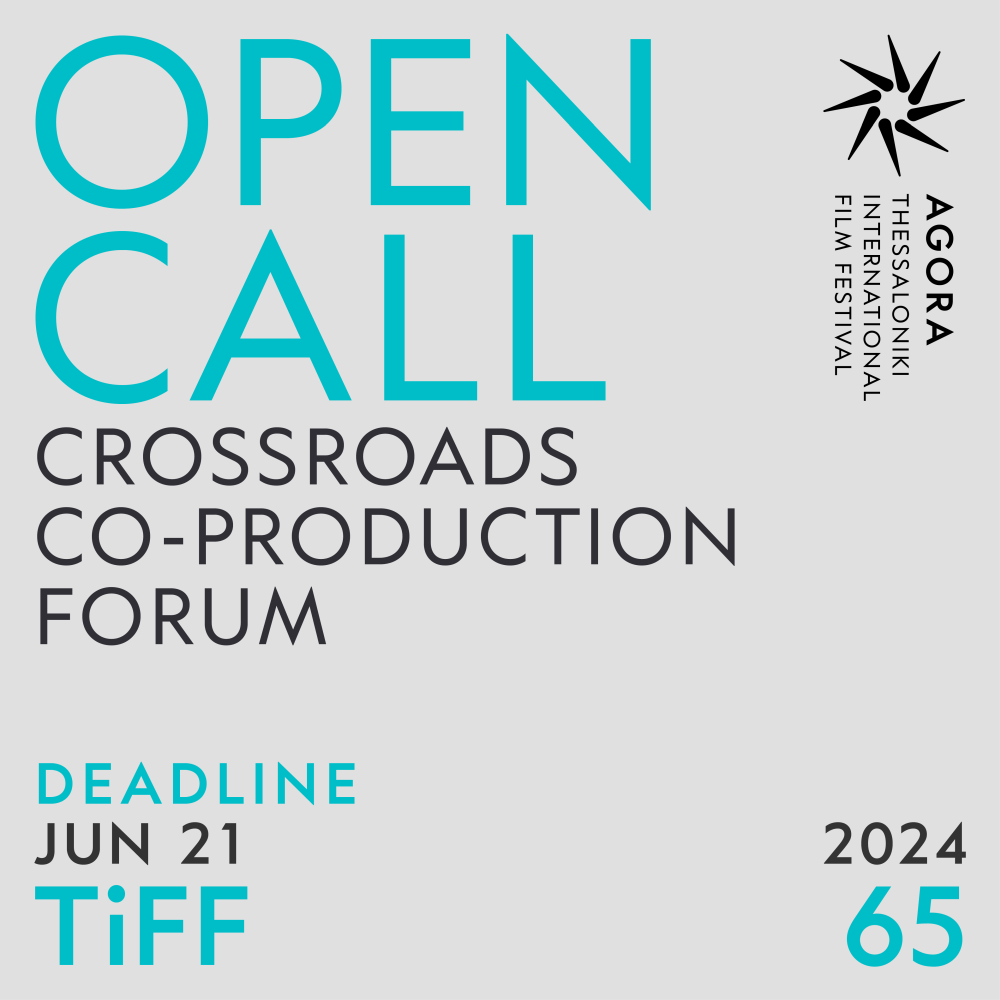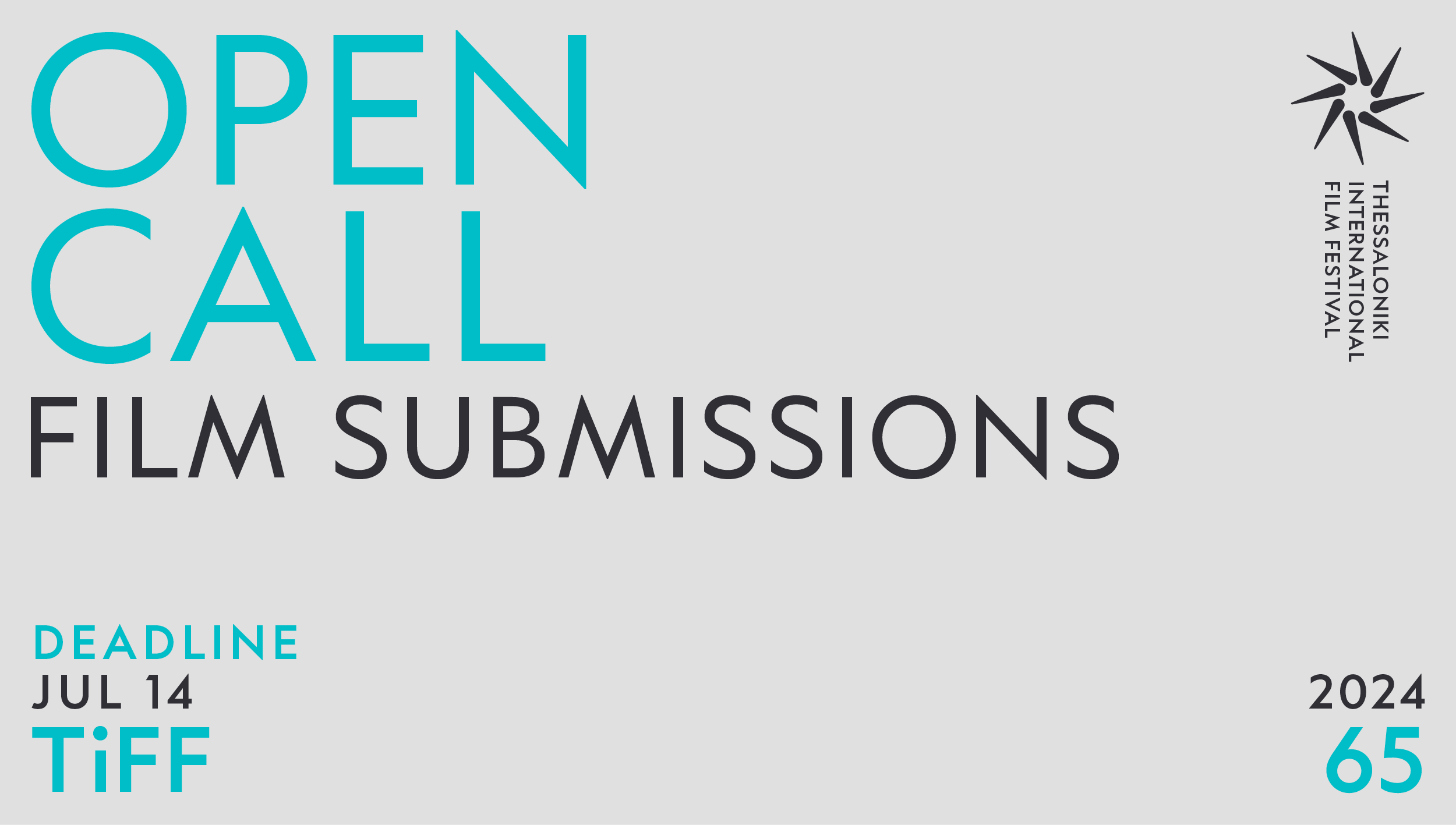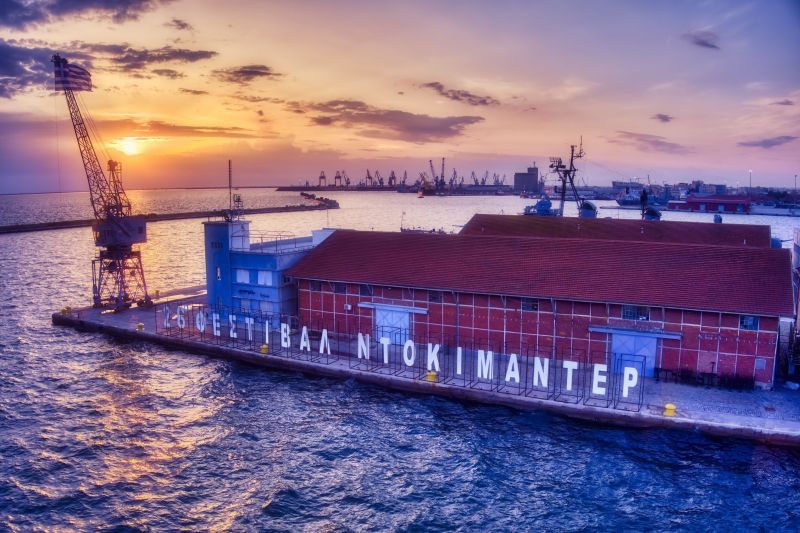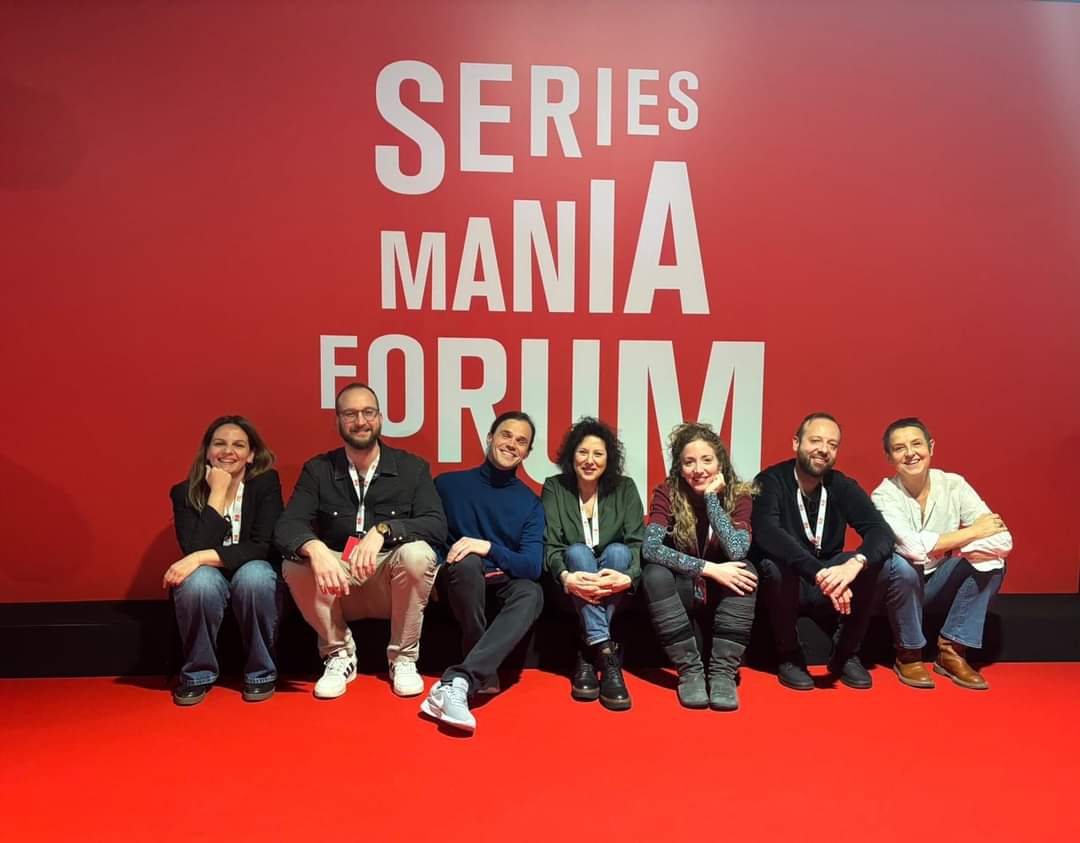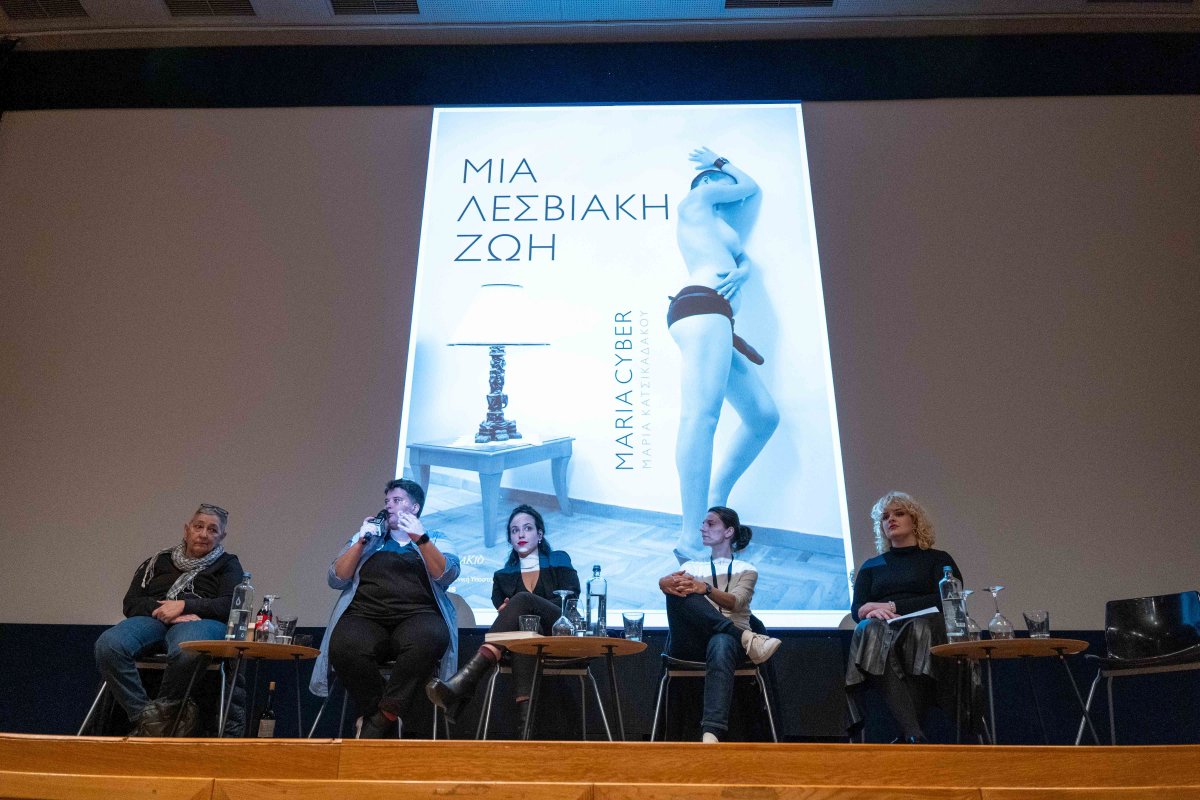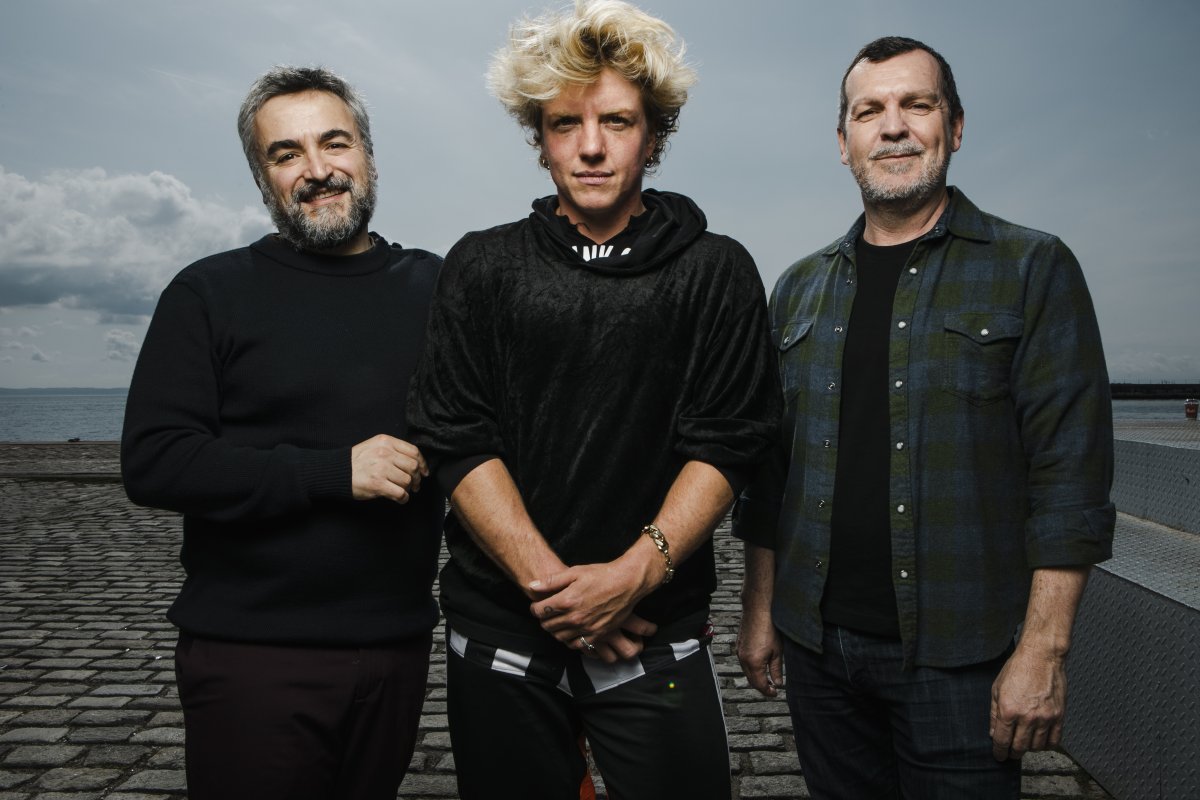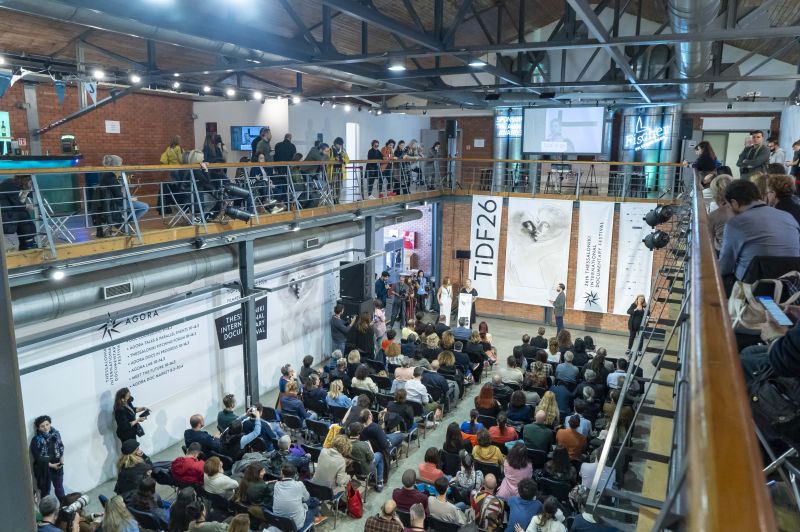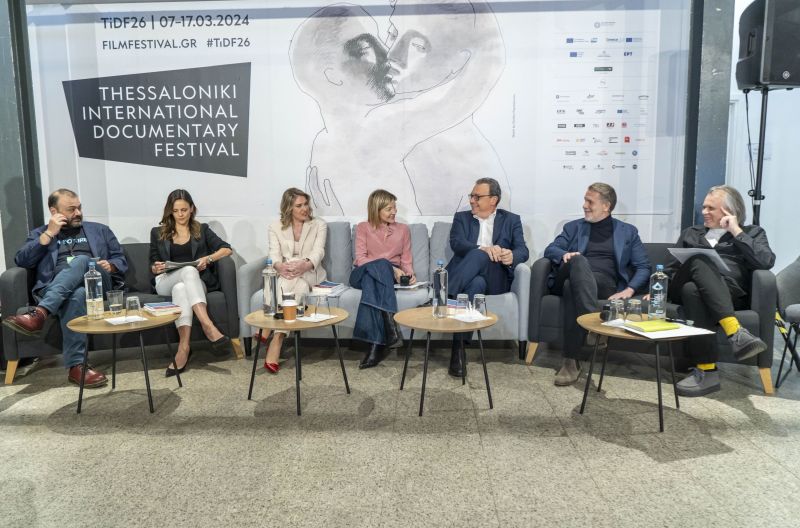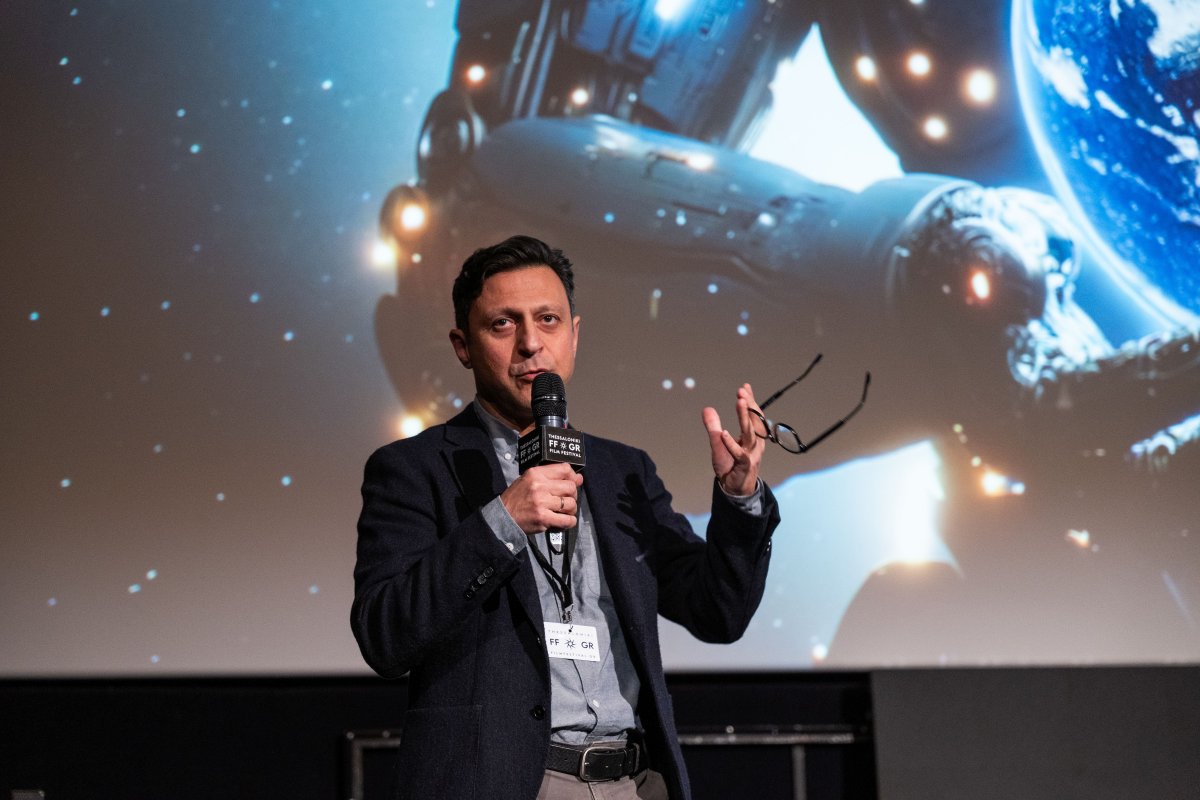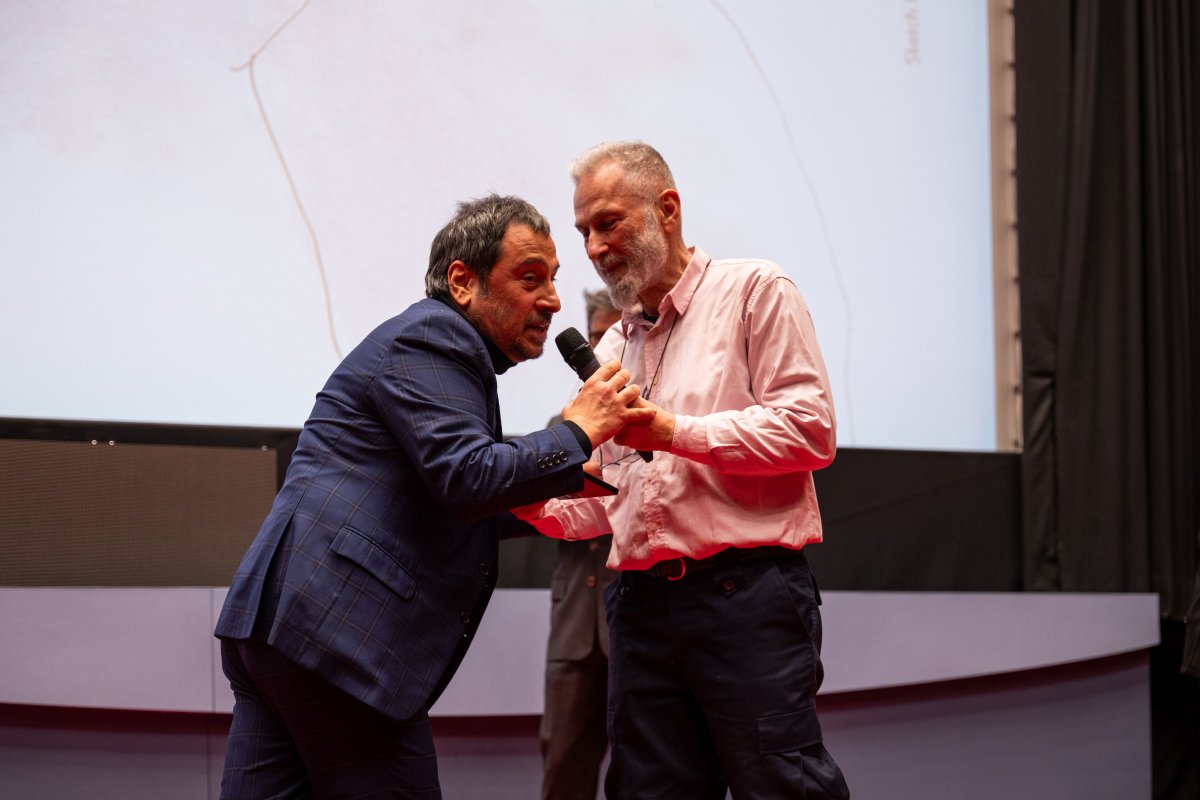A Panel Discussion on “The Social Role Of Documentary Festivals. Ways for Documentary Makers To Make The Most Of Documentary Festivals” took place on Tuesday, March 17 as a sidebar event of the 11th Thessaloniki Documentary Festival. The panel analyzed the access to Documentary Festivals to an ever increasing number of viewers as well as the different conditions that exist in different social environments.
The Panel consisted of: the Artistic Director of the 11th Thessaloniki Documentary Festival, Dimitris Eipides, the Director of the Amsterdam Documentary Festival (IDFA), Ally Derks, the Programmer of the Karlovy Vary Festival, Karel Och, the producer and representative of the Tribeca Film Institute, Pamela Cohn, the Director of the Reykjavik Festival, Hronn Marinosdottir, as well as the producer and filmmaker, Peter Wintonick. Konstantinos Kontovrakis moderated the Panel Discussion.
“There are varied reasons for creating a documentary Festival. In other countries, where there is a great deal of film production, one needs a forum to show the work of directors. In Greece this was not the case, but it was necessary to create a festival so that we might have access to the international production of the genre, and in this way have alternative means of information on subjects that would never reach television or newspapers”, Dimitri Eipides underlined and commenting on the constantly increasing audience interest added: “The first year, the audience was very passive. They didn’t ask questions, they didn’t actively participate. This has now changed drastically. Indicative of this change is the fact that from 8.000 we now have 40.000 viewers a year. At the same time, the Festival travels to many areas of Greece, something that shows the great increase in the interest of Greeks in the documentary genre”. According to Mr. Eipides, the biggest challenge for the future is the proper use of new technology: “I would like, through the use of technology, to incorporate the Festival program on the internet or television, in order to greatly increase the percentage of Greek viewers with access to documentaries”. Referring to the institution’s social role, the artistic director of the Thessaloniki Documentary Festival said: “We can highlight burning social issues through the Festival. This is the reason we are holding a Tribute to Africa this year. Right from the beginning we have had films on Africa, but it was rare to have one from an African director. They were usually made by foreigners who traveled and recorded their images, but without knowing “from the inside” situations such as those lived by those who live in African countries”.
Ally Derks, director of the famous Amsterdam Documentary Festival (IDFA) said: “What is necessary in a Festival is interaction. Directors should speak with the audience, there should be an exchange of ideas”. Comparing the past with the present, she said: “When we began, 21 years ago, documentaries were not screened on television or in cinemas. Today, we receive 3,000 film applications a year, and we have more than 150.000 viewers, while we travel all over all Holland, screening the 10 best films of the festival from city to city, in art houses as well as commercial theaters. Moreover, every week during the entire year we organize screenings at the Amsterdam library”.
The history of the Karlovy Vary Film Festival in the Czech Republic is also long. “The Festival has existed since 1946, but during the socialist era it was held alternately at Karlovy Vary and Moscow. Today, we devote 10% of our program to documentaries. We only have 10 places for feature films in the competition section, but we try to fit in more documentaries in other sections since every year we receive 800-900 applications from documentary film makers”, Karlovy Vary programmer Karel Och stated, and then added that his priority is the photographic style of a documentary: ”We don’t place any restrictions on form or content on the documentaries we accept. However, during the selection process, we place a greater emphasis on form”.
The independent American producer and representative of the Tribeca Film Institute, Pamela Cohn, spoke on the conditions on the other side of the Atlantic: “The documentary filmmaking community, in New York and more generally in the USA, has been changing over the last few months because of the international financial crisis. This is why we are trying to raise funds for the creation of films through the Gucci Tribeca Documentary Fund. Last year we had 450 applications. We don’t have a long or rich tradition, but in New York we have important directors who help new filmmakers with their experience. What we look for is mainly cinematic documentaries, that is, the telling of true stories in a cinematic environment and not so much “television” documentary-reportage”, Pamela Cohn said and added: “What we ask from documentary makers in the USA is for them to cover the information gap left by big media. We live in a country where many citizens are disinterested and passive. But there are more and more young people who are aware, they are socially conscious and hunger to see new things”.
The Director of the Reykjavik Film Festival, Hronn Marinosdottir, spoke of the great increase in documentaries in her country, Iceland: “This institution has only been around for 6 years. We started with 15 films the first year, but now the program contains around 400, and we have roughly 20.000 viewers each September. Documentaries make up 30% to 40% of the total program, a percentage that shows our love for documentary films”.
The independent director and producer Peter Wintonick called documentaries an “informative art” and confessed that he is … addicted to Festivals: “I’ve collected 400-500 accreditations. I keep them in a bowl that keeps getting fuller every year! The problem for me is that there are so many Film Festivals, about 3.600 in the world. Even if many of them don’t include documentaries, it’s difficult for me to follow them all, as I would like. Still, I’m like a gypsy, always on the road, searching for the perfect festival”.
The Panel Discussion concluded with questions from the audience, one of which concerned the accusation of censorship by the Italian government exercised on the Torino Festival. “I would prefer to close down the Festival rather than accept any form of censorship. The documentaries are freedom, they are the embodiment of the right for every director to express his opinion”, stressed Dimitri Eipides, while the rest of the panel stressed that they have never received any interference on what “should” be included in their Festival and what not. However, Peter Wintonick offered a different point of view: “It takes a strong will on the part of the director of a Festival in order to not give in to pressures, wherever they may come from. These pressures might be harsher where there is state funding, but it can take more underground forms. The existence of dozens of “gold” and “platinum” sponsors, as at Hot Docs in Toronto for example, in my opinion leads to a hidden form of dependence”.



